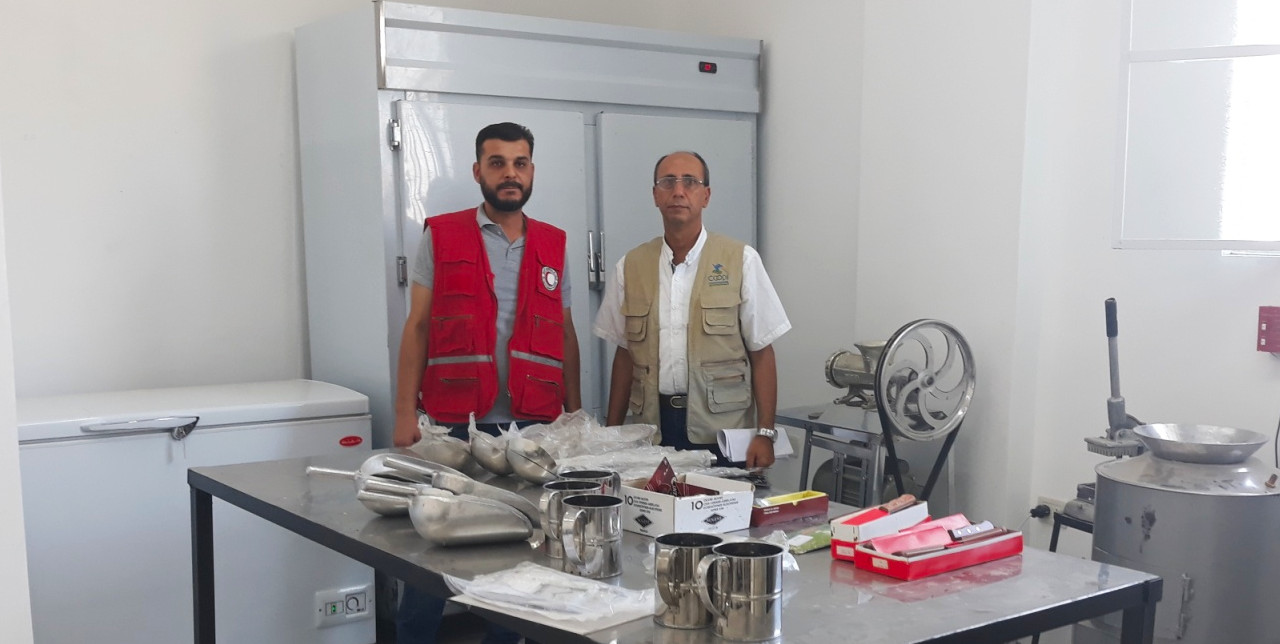30-01-2019 | di COOPI
Eastern Ghouta: a new emergency assistance for the district of Nashabye
Food insecurity, lack of hygiene and unexploded ordnance are worsening the living conditions in the district of Nashabye and surrounding 15 villages, in Eastern Ghouta. This densely populated area has been largely affected since 2011 by the Syrian crisis and nowadays 55,000 people do not have or have limited access to basic goods and services.
Vital public and private infrastructure destruction, limited freedom of movement – mainly to elderly and disabled people - and the displacement of most of the population that is now gradually returning to their locations are exacerbating the local community extreme poverty living conditions.
COOPI identified the district of Nashabye as its priority action area: thanks to European Commission's funding (ECHO, Civil Protection And Humanitarian Aid Operations) and SARC (Syrian Arab Red Crescent) cooperation, COOPI launched the "Emergency assistance and resilience plan for the population affected by conflicts in Nashabye, Eastern Ghouta" project in September 2018. This emergency action aims to help about 12,900 beneficiaries, by distributing food and hygiene kits and by attaining the self-sufficiency of the local population.
Distribute food and encourage traditional food production for self consumption
Distributing hot meals is one of the key activities of COOPI food safety plan in this area. Before COOPI arrival, food supplies only provided 1,500 kcal per person per day, compared to the standard 2,100 kcal required. This project therefore aims to distribute hot, daily and nutritious meals to approx. 8,400 people.
COOPI food safety activities will also:
- provide a safe and hygienic community kitchen in the village of Nashabye;
- involve local cooks, to provide community members with a source of income and serve meals, which reflect and respect the beneficiaries’ tastes and traditions;
- distribute seeds and poultry to families, in order to attain the community self-sufficiency.
Promote hygiene best practices and provide useful hygiene kits
COOPI also committed itself to raise awareness of personal and collective hygiene by:
- organising awareness sessions for beneficiary communities;
- provide basic personal hygiene kits for adults, women, children and kits for domestic use;
- provide water for homegarden irrigation by repairing about 200 wells for the benefit of approx. 2,000 people.
Raise awareness of unexploded ordnance and give psychological support
Several bombings during recent years have increased people vulnerability and exposure to unexploded ordnance near mined areas. COOPI emergency project thus aims to train beneficiaries and distribute educational material to approx. 12,900 people, who will learn how to recognize unexploded ordnance.
Since the Syrian conflict also severely traumatized people - directly or indirectly involved in the clashes - COOPI has therefore decided to:
- provide psychological support to 500 among the most vulnerable people affected by the war;
- build safe meeting places where beneficiaries can meet, gather information and organise community initiatives.
We would therefore like to thank ECHO who is helping us to support Nashabye communities for the "Emergency assistance and resilience plan for the population affected by conflicts in Nashabye, Eastern Ghouta" ongoing resilience project.




 Syria
Syria